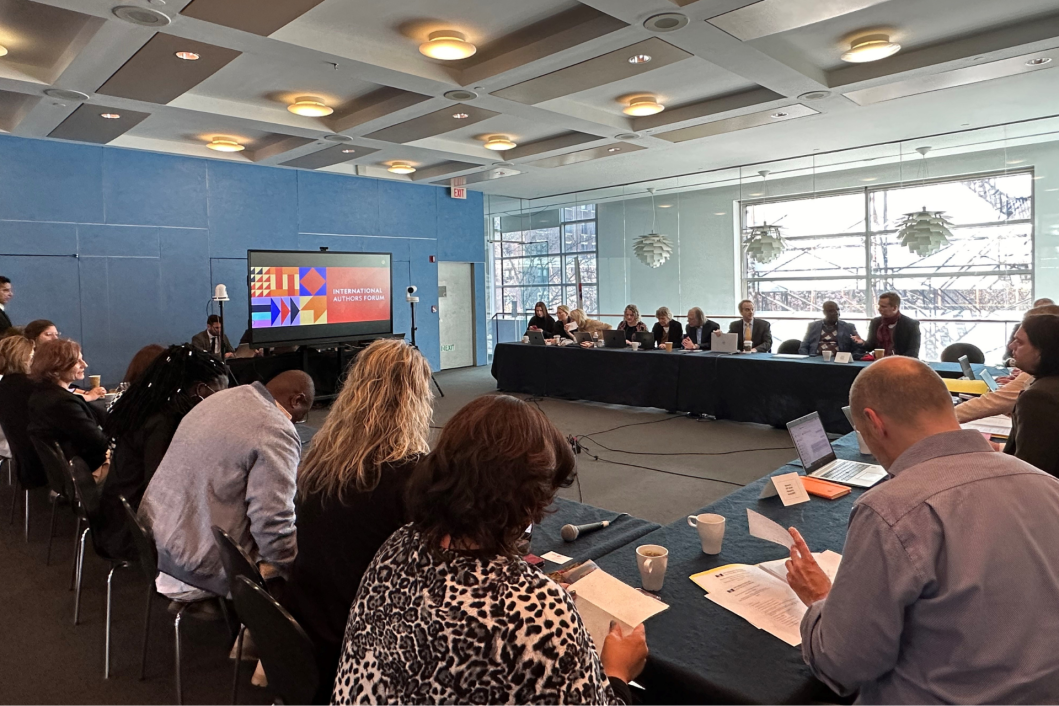The International Authors Forum (IAF) held its third hybrid Annual General Meeting (AGM) in New York City. Following the AGM, the Secretariat organised three panels that addressed the development of artificial intelligence (AI) from the perspectives of writers and visual artists and provided an overview of the development of AI in various regions of the world.
In the first panel, ‘The Impact of Artificial Intelligence on Authorship: Navigating Copyright, Ownership and Rights’ speakers discussed the concerns from writers around AI. It was emphasised that while AI may help authors in their work if it were utilised in conjunction with other tools, writing continues to require a human connection between the writer and the reader.
Alison Rodriguez, President of the International Federation of Translators, said: “a good writer can take an experience and express it in a deeper way” and “creativity is about people having a choice, connection, and expression, not productivity and metrics”.
Michelle Woods, the Director of the Copyright Law Division at the World Intellectual Property Organisation (WIPO), provided an update on the organization’s work on AI. She said that the organization’s approach to AI will focus on the humanity of artists and innovators, view AI as a useful tool that authors must control and pay attention to how AI is progressing in developing countries to minimise any potential negative impact.
The second panel ‘AI in Visual Arts: Challenges and Opportunities for Artists’ Remuneration in the Digital Age’, focused on the impact of AI in the visual art field. The speakers discussed several key AI copyright infringement cases such as Getty Images v Stability Ai in the United Kingdom or the class action of the Authors Guild v OpenAI in the United States. Speakers also cited several remarks made by artists that AI could lead to a significant loss of jobs in the industry. Paulina Holmgren, President, Swedish Association of Professional Photographers, stated that as a freelance photographer, transparency is the key value that must be achieved for both AI developers and creators.
At the third panel, speakers from around the world, including the United States, the UK, South Africa, Sweden and France, provided an update on the state of AI development in their countries. It’s crucial to highlight that, even though all of the speakers have similar concerns over AI, they are actively seeking to find legislative solutions to limit the negative impacts. Florence Piriou, the Secretary General of La Sofia (France), reiterated this feeling by emphasising that a creative industries-wide collective has worked together to call for the EU’s AI Act to include transparency and enforcement of copyright obligations.

